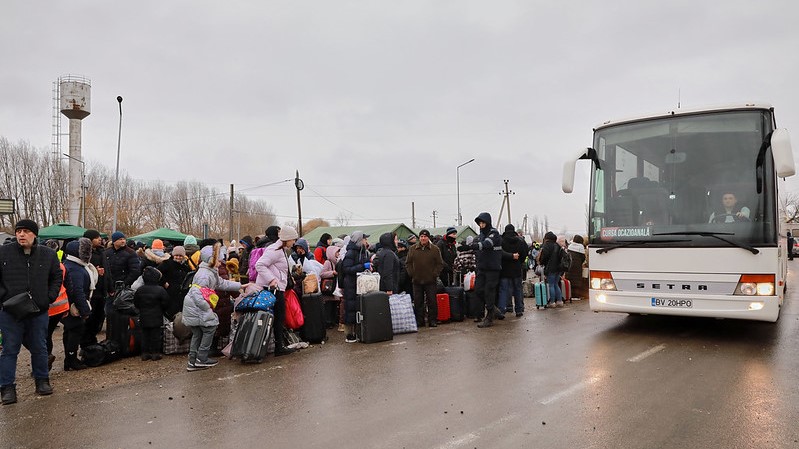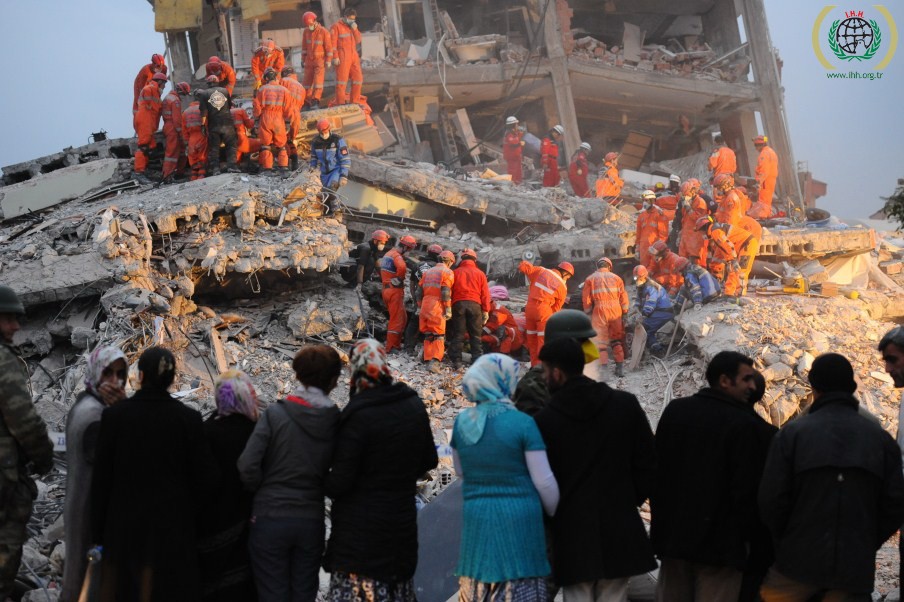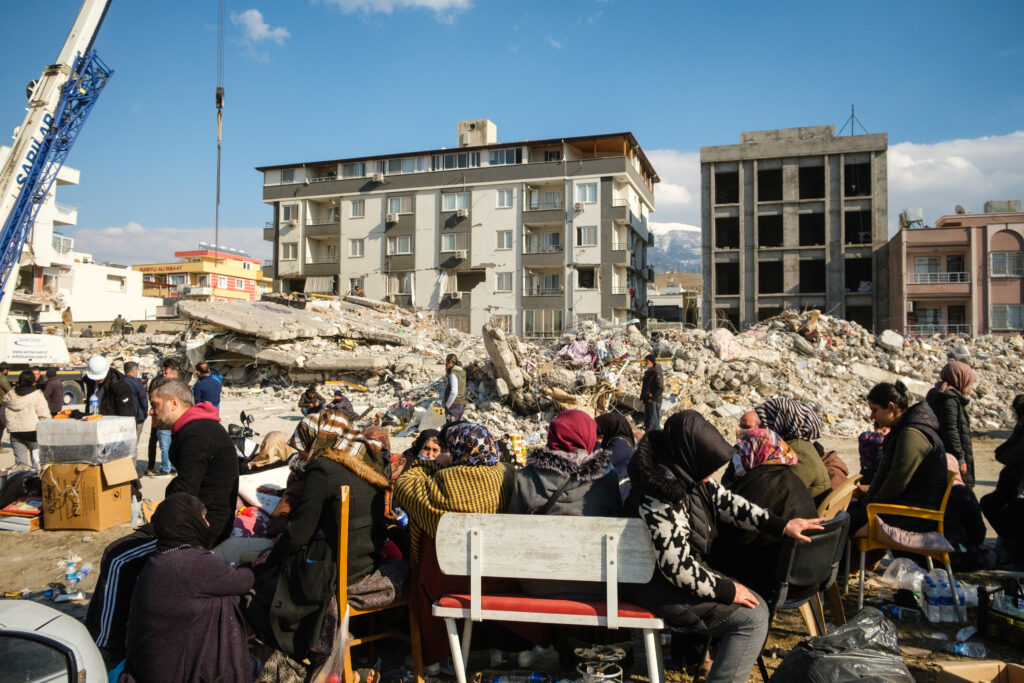MSc in Media, Communication and Development alum and multimedia journalist Aggrey Nyondwa reflects on Shakuntala Banaji’s latest paper critiquing Resilience.
I do love a good humanitarian story. One that is well contextualised, centres the experiences and voices of communities and highlights their agency and resilience. Mark resilience, we’ll come back to it.
The assumption is that this kind of story will inform donor audiences, motivate solidarity, and also inspire hope. It is also a departure from the classic story of need, whose primary goal was to evoke sympathy by focusing on suffering, poverty and presenting individuals as objects of pity.
So, when I got this humbling invitation a while ago from my former professor, Shakuntala Banaji, to have a chat with the current MSc Media, Communication and Development cohort at LSE, I wasn’t short of what to talk about.
But halfway through my talk, Professor Banaji, who had been keenly following the presentation up to this point – with occasional nods, involuntarily interjected when I spoke about resilience.
“Now, about that,” she said,
“I am not sure these communities HAVE to be resilient in the first place…”
She had a very interesting point, and I was eager to hear more, but we were both quick to recognise that this would take the day’s discussion in a whole new direction. I just had to look out for her upcoming paper about this.
The paper was published a few months ago and, like any other work of hers, it’s a compelling critique. Professor Banaji argues that Resilience has become a Neoliberal celebratory concept that sweeps the oppression and injustices faced by marginalised communities under the carpet. That, by focusing on resilience, critiques of injustices and violence may be ignored, especially if resilience is presented as evidence that individuals or communities have the capacity to endure and overcome challenges. This, rather unintendingly, ends up shifting the pressure and responsibility to overcome violence on the oppressed ones.
The resilience discourse, she argues, tends to celebrate central characters and individuals for overcoming adversity with little or no attention given to the numerous sacrifices; lives lost, families broken or separated, imprisonments, jobs lost and so on. And yet, there is a disturbing irony to this; the more resilient the oppressed get, the more so the oppressive systems. A violent system won’t stop at anything but the ultimate annihilation of the marginalised. Israel-Palestine is a classic example. Prof Banaji adds that resilience has a limit after which it leads to “destruction and untimely death.” The resilience discourse also provides a false sense of progress and empowerment, while allowing the existing systems of inequality to persist.
In humanitarian and development communication narratives, there was a professional consensus in the early 1990s to move away from the commonplace stories of suffering, told with all sorts of racist undertones. Therefore, spotlighting the agency and resilience of affected communities became the ethical genre. However, this resilience, just like vulnerability ends up being portrayed solely as a property of the people suffering rather than an outcome of the social relationship and political systems that oppress them. It is therefore justified to critically examine humanitarian narratives that solely focus on resilience without addressing the underlying structural triggers.
However, if we are to look at Resilience from a point of necessity, it could be what one needs to survive oppression. It is another form of resistance. Just like the cliché goes, what doesn’t kill you makes you stronger. Or does it?
In most fragile and oppressed contexts, you either toughen up or give in. You either swim or sink because giving in means that the bad guys win. Yes, it’s crucial to critique the underlying causes of inequality and violence but we must recognise that they are here anyway and sometimes the realistic thing to do is ensuring that individuals survive it. One way of achieving this is by celebrating this survival and the people who champion it.
In humanitarian storytelling, where the aim is to have affected individuals at the centre, stories of resilience become inevitable in order to motivate global solidarity and also inspire hope among communities. For instance, in the case of South Sudan, hundreds of thousands of refugees endured life in refugee camps in Uganda for years. They devised coping mechanisms including ones contrary to the often celebrated neoliberal formats. After over 10 years, today many of them are returning home. Resilience narratives also played a crucial role in how ordinary Ukrainians came together to fight back against the Russian invasion in 2022. In both cases, the resilience and resilience narratives didn’t solve the conflict, but it kept these communities going – inspired and motivated to survive.
Calling for overthrowing the resilience discourse is not warranted. Humanitarian communication narratives have evolved from a spectacle of distant suffering and white saviourism to centring local voices and agency. Neglecting to highlight this agency and resilience feels like a step backwards. However, there is huge room for improvement, for instance, by embedding advocacy and justice-oriented narratives in the stories we tell. This way, we point out the root causes of socio-political and economic violence and call out the agents that perpetrate it.
Given the inherent nature of violence and inequality in our society and how systemic it’s become, we still have a long way to go to achieve a fair and just world. But to keep fighting, we must survive first. Therefore, alongside critiquing the unjust system and advocating for things to change, we must acknowledge that resilience buys us time and strength to strike back at the oppressors. Resilience is not compliance, it is resistance. You’ve got to survive today to fight tomorrow. And when this happens, it should be celebrated in humanitarian storytelling.
The views expressed in this post are those of the author and do not reflect those of the International Development LSE blog or the London School of Economics and Political Science.
Featured image credit: Ethiopia: EU boosts aid in response to El Niño drought. The European Commission via Flickr.





